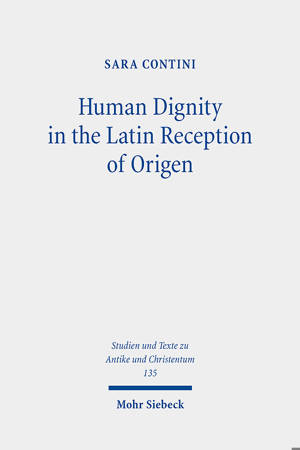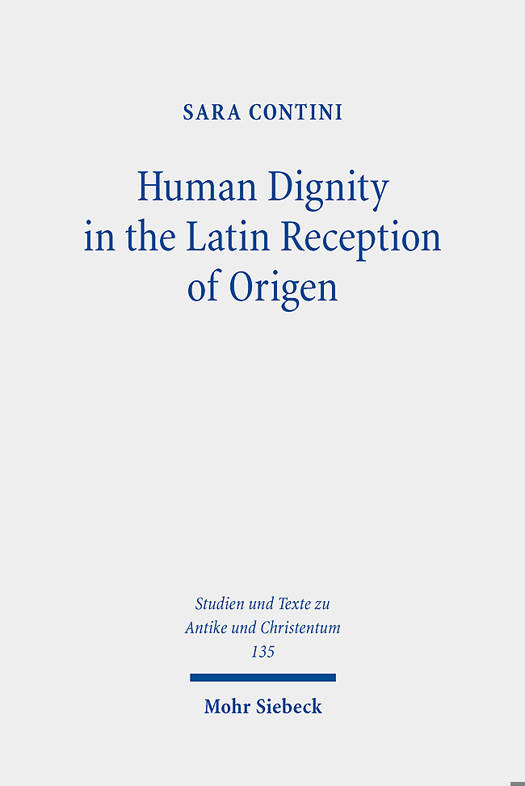
Bedankt voor het vertrouwen het afgelopen jaar! Om jou te bedanken bieden we GRATIS verzending (in België) aan op alles gedurende de hele maand januari.
- Afhalen na 1 uur in een winkel met voorraad
- In januari gratis thuislevering in België
- Ruim aanbod met 7 miljoen producten
Bedankt voor het vertrouwen het afgelopen jaar! Om jou te bedanken bieden we GRATIS verzending (in België) aan op alles gedurende de hele maand januari.
- Afhalen na 1 uur in een winkel met voorraad
- In januari gratis thuislevering in België
- Ruim aanbod met 7 miljoen producten
Zoeken
Human Dignity in the Latin Reception of Origen
Sara Contini
Paperback | Engels | Studien und Texte zu Antike und Christentum /Studies and Texts in Antiquity and Christianity / STAC | nr. 135
€ 200,45
+ 400 punten
Omschrijving
Sara Contini assesses the meanings attributed to the term dignitas ("dignity") in the Latin translations of Origen of Alexandria, as well as in other Latin Christian texts of the 4th century which, to different degrees, show the reception of Origen's views on the creation of the human being according to the image of God. Authors like Rufinus, Jerome, or Hilary of Poitiers are the first Latin writers to employ the term dignitas to denote the universal potential of humans as rational and free beings. The contribution offered by these authors to the history of the idea of human dignity was, based on Origen's notion of the universal reach of God's love, to problematise the elitism and individualism associated with Classical views on dignitas, and thus to frame the traditional understanding of dignity as rank in a new egalitarian perspective.
Specificaties
Betrokkenen
- Auteur(s):
- Uitgeverij:
Inhoud
- Aantal bladzijden:
- 256
- Taal:
- Engels
- Reeks:
- Reeksnummer:
- nr. 135
Eigenschappen
- Productcode (EAN):
- 9783161627736
- Verschijningsdatum:
- 1/12/2023
- Uitvoering:
- Paperback
- Formaat:
- Trade paperback (VS)
- Afmetingen:
- 231 mm x 155 mm
- Gewicht:
- 231 g

Alleen bij Standaard Boekhandel
+ 400 punten op je klantenkaart van Standaard Boekhandel
Beoordelingen
We publiceren alleen reviews die voldoen aan de voorwaarden voor reviews. Bekijk onze voorwaarden voor reviews.









